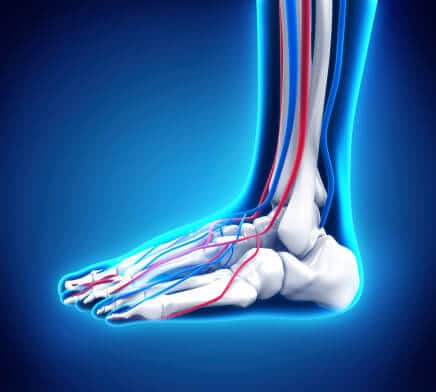Va Secondary Conditions To Ankle
If you're looking for video and picture information related to the keyword you've come to pay a visit to the ideal blog. Our site provides you with suggestions for seeing the highest quality video and picture content, search and find more enlightening video articles and images that fit your interests.
comprises one of thousands of video collections from several sources, particularly Youtube, therefore we recommend this movie that you see. This blog is for them to visit this site.

38 CFR 3310b provides that veterans can receive compensation for non.
Va secondary conditions to ankle. For instance you may have broken your right foot during combat the service-connected injury. The DoD will also rate service-connected conditions as long as they also make the service member Unfit for Duty. The normal range for the ankle is between 45 to 0 degrees for plantar flexion when the top of your foot points away from your leg and between 20 to 0 degrees for dorsiflexion moving your foot up toward the shin. Many veterans suffer from ankle tendonitis due to the physical demands of active duty military service.
Arm Condition Neurological Other System. Some of the most common foot conditions veterans experience following service include pes planus flat feet plantar fasciitis bunion deformity and arthritis. A secondary service connection occurs when you can connect your ankle instability with another service-connected injury or issue. During this time veterans may be engaged in fitness-related activities and jobs that require a lot of physical exertion.
Veterans may be eligible to receive VA disability compensation if they are able to demonstrate that their foot conditions are due to their time in service. Arm Condition HeartVeinsArteries. Some of the more common conditions are. If a service-connected condition puts stress on another part of your body that causes another condition to develop then that other condition should be a secondary condition.
Flexion limitation of range and motion and pain. Another way of obtaining a VA rating for ankle instability is by proving a secondary service connection. Because of the change of walking gait often spinal discs can deteriorate more quickly leading to pain. This can lead to the development of a number of possible secondary conditions.
From a medical perspective analyze the current Department of Veterans Affairs VA practice of assigning service connection on secondary and aggravation bases. One of the most common diseases that veterans exposed to AO developed is diabetes. This disease can cause a variety of secondary problems to include neuropathy to the limps kidney disease cataracts etc. The examiner may then make the medical nexus that it is as likely as not that the veteran has low back pain with degenerative changes secondary to the left legankle condition.
VA doctors will prescribe medications and discuss with veterans their side effects but most veterans are unaware that they may be entitled to compensation for these side effects. The VA awards disability compensation for each Ankle condition that is service-connected. To determine the rating for your ankle injury the VA will focus on two factors. For Reservists the condition must have occurred in or resulted from an injury in the Line of Duty to qualify.
In secondary claims determine what medical principles and practices should be applied in determining whether a causal relationship exists between two conditions. These secondary conditions can be service-connected due to diabetes. An ankle or knee injury may cause you to walk in such a way that you put stress on other parts of your body. It may also cause weakness and numbness.


















